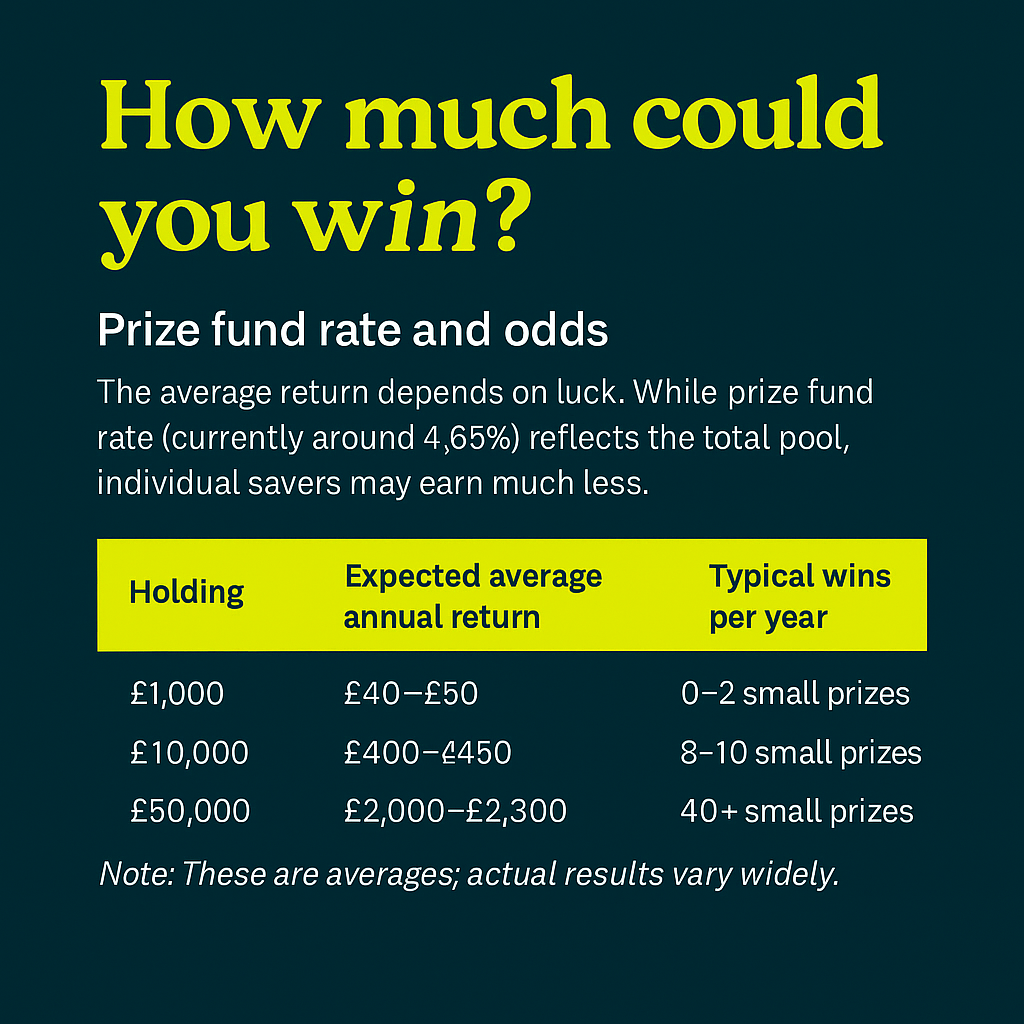

• Minimum investment: £25
• Maximum holding: £50,000
• Prize fund rate (equivalent “interest” pool): currently set by NS&I
• Odds: about 1 in 21,000 per £1 bond per month

If you need predictable monthly income, consider:
• Fixed rate savings accounts
• UK government gilts
• Dividend-paying funds
• General investment accounts with income portfolios
By comparison:
• Interest from savings accounts may be taxed, depending on your personal savings allowance.
• Bond coupons and dividends are taxable.
Premium Bonds are:
• Good for: savers who want safety, enjoy the prize draw element, or want a tax-free place for up to £50,000.
• Poor for: investors who need regular income, predictable growth, or long-term inflation protection.
• Fixed rate savings: Guaranteed returns for 1–5 years.
• Gilts and corporate bonds: Regular coupon payments.
• Bond ETFs: Diversified exposure to income-paying bonds.
• Dividend funds: Shares that distribute regular income.
1. Register online with NS&I.
2. Invest a minimum of £25.
3. Hold for a full month before entering the draw.
4. Prizes are drawn monthly and paid directly into your bank or reinvested.





Subscribe to our newsletter for exclusive tips, expert advice, and the latest updates from Zomi Wealth—delivered straight to your inbox.
Know more about Zomi Wealth, how we invest, our plans and how to be a part of Zomi Wealth. Contact Us!